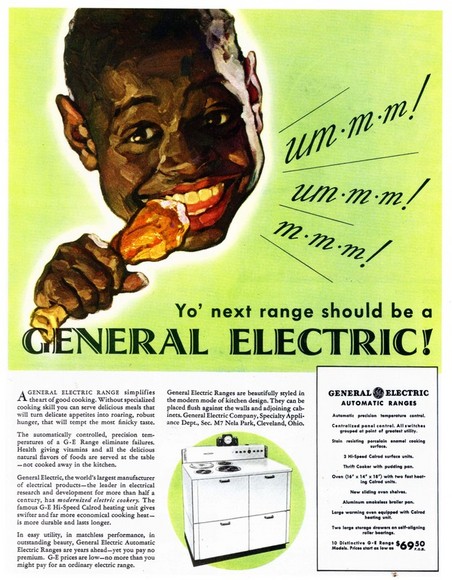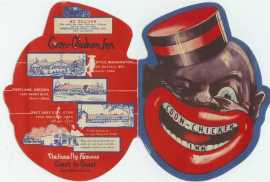I’ve read many opinions via blogs and media and had a number of conversations with a few friends about this “unfinished, leaked” commercial and even laughed at the exaggerated use of stereotypes in the Second City parodies of the Burger King ads and finally came to an unkanny! conclusion:
This is a very bad commercial from every perspective.
From an advertising perspective: What everyone must understand about advertising, especially television, is that all advertising is based in generalizations, assumptions, and unfortunately stereotypes. This is how they “relate” to their consumer or particular demographic to get them to buy the product being advertised. There are stereotypes throughout the ad, including the white man that asks the question, donnes in a denim button down shirt and khaki pants, the black girl who stands behind him with her natural hair and earphones in her ears, the Asian young girl cashier who obviously couldn’t best answer the question because her dorky White boss chimed in before she could get a word in, and look at the “dorky” White boss who bears a striking resemblance to the dorky personification of the “Windows” guy from the Apple ads, an overweight, White guy with hair neatly combed to the side and round eyeglasses. Do you think that same commercial would have appeared in some predominately White viewing market in the south or midwest? Not a chance. It was designed to appear in predominantly Black, inner-city and suburban markets where the advertisers thought they could connect to their markets through Mary and an R&B sound. When celebrities are ask to participate in an ad, the ad is usually centered around what that celebrity is known for, for example: Seinfield uses his humor in the Acura Ads; Tiger Woods, Roger Federer representing the best game performances for Nike Ads; Jennifer Hudson singing and showing off her weight loss for Weight Watchers, etc. In this particular ad though, Mary J. Blige’s celebrity status is limited to being a familiar voice singing the ingredients of a crispy chicken wrap as if she were singing one of her most recognized tunes. In all due respect to Mary, if Burger King wanted an R&B sound, they could have gotten any black, female R&B singer to sing ingredients. They were hoping that Mary’s visual star power would bring in more sales. The concept of the commercial itself is poor as it fails to capitalize on Mary J. Blige’s stardom in her industry. In many ways, one can argue that it reduces her celebrity status.
From a branding perspective: Burger King has long been known for two things—the Whopper and flame-broiled burgers. Remember those commercials with the juicy burgers passing through the flame-broiler? Yum! Well, in the age of healthier eating, flourishing gourmet burger joints, tastier vegetarian options, organic food and pink slime, that flame-broiled burger just didn’t sound or look as enticing as before. Unfortunately, having a name like “Burger King” doesn’t give you much room for deviating from the very thing you should be the expert on. So how does a struggling brand stay relevant? Deviate completely from its mark of expertise—add a crispy chicken wrap to its menu. The chicken isn’t even flame-broiled (which would be the healthier alternative to frying). The chicken is on a tortilla wrap, not even a bun and they didn’t even develop their own special sauce. Tsk, tsk, tsk.
From a Black perspective: First, let me say I do not find the commercial offensive based on it being a black person singing about crispy chicken. Let’s look at a few ads that perpetuate the poor stereotype Black people are comparing the ad to:

GE Ad for an Electric Stove

Do-Nut Dinette Ad

Ad from 1950s
To say that Mary J. Blige “sold out” for $2 million or that Burger King is racist is a stretch. No one seemed to react the same way when Popeye’s employed a sassy Black woman with short hair and a Southern accent to be the face of Popeye’s Chicken. That woman claims to have owned the recipe and rarely appears in the commercials without an apron. Her name is “Annie, the Chicken Queen” who oftentimes points her finger, twists her neck and says “honey”. Let’s even look at the Pine-Sol commercials who employed yet another sassy, gap-tooth, full-figured woman bearing braids/dreads being the expert on clean, claiming “that’s the power of Pine-Sol, baby.” To say these women are modern-day Aunt Jemima and Mammy are not a stretch. Had Mary just done a voiceover singing the ingredients, it likely would not have generated any news. Because she is in the commercial singing the ingredients, there’s an outcry. She isn’t seen eating the chicken with greasy lips, she isn’t speaking as a mammy or jemima character—in fact, she adds nothing to her role in this commercial than singing the lyrics in a setting she would normally sing her lyrics, which is in a performance on stage to an R&B beat. If she were singing the lyrics on a horse, that would be crazy. If she were singing the lyrics and playing the banjo, that would be stereotypical. If the commercial began in the concert setting instead of in the restaurant with a couple of forgettable characters, it likely would not have generated as much offense.

